Halfway into the first episode of Marvel’s Runaways, Karolina Dean decides to rebel. All her life, she has worn the clunky bracelet associated with her religion — the Church of Gibborum, run by her mother Leslie Dean whose all white wardrobe is a glistening facade for dark secrets. Karolina finds herself at a horrible frat party, and something magical happens. She sees two women making out on the dance floor. She pauses, stares, transfixed. The scene captures that moment of knowing and not knowing something all at once. It’s significant that this is the moment Karolina decides to unshackle her bracelet. She does so, and her body transforms, glowing in bright rainbow light.
If you have been following any of our coverage of Marvel’s Runaways or are familiar with the comics, then you already know that Karolina Dean is canonically a lesbian. In the first three episodes of Runaways — all released on Hulu on Tuesday — that moment on the dance floor is the only real foreshadowing of her upcoming coming out arc, which I won’t spoil for you. But it’s a powerful moment, one that intrinsically links Karolina’s discovery that she has special abilities to something deep within her, to something much more real and relatable than superpowers. That look she gives those two girls on the dance floor says a lot with a little. Character development throughout Runaways’ early episodes is done in meaningful, nuanced strokes. Its emotional storytelling is as strong as its plotting.
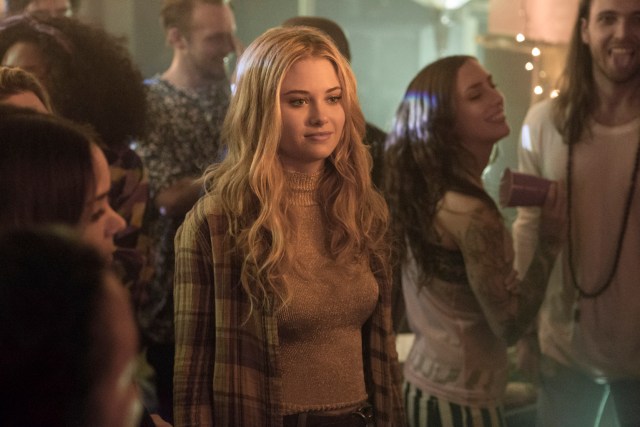
Runaways tells a story of six kids — Karolina, Alex Wilder, Chase Stein, Gert Yorkes, Molly Hernandez, and Nico Minoru — who witness their parents sacrifice a young girl in a very creepy ritual in a secret basement. It’s a story that involves genetically engineered creatures, a magical staff, a ritual sacrifice, x-ray goggles, and so many other fantastical and sci-fi devices, and yet the show is imbued with very real problems that ground these characters with emotions and stakes that are relatable. As they grapple with the mystery of their parents and their mysterious PRIDE organization, the teens also grapple with the tragic loss of their friend and Nico’s sister Amy, whose death hangs over the show from the start, touching all the characters in different but seismic ways. It’s a story of broken friendship, divergent grieving processes, shared trauma. Those very real emotions heighten the stakes of the otherworldly ongoings. Their parents’ villainous activities take the shape of corrupt real estate dealings, evil tech companies, and overreaching pharmaceutical companies. Runaways infuses its world with real evil.
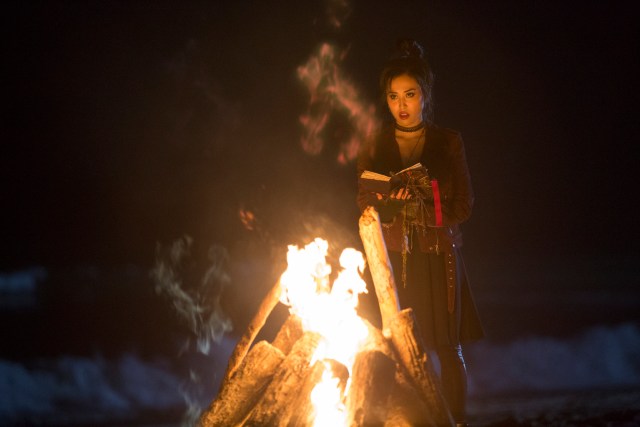
Karolina, Alex, Chase, Gert, Molly, and Nico all seemingly fit into neat categories — the smiling believer, the nerd, the jock, the social justice warrior, the little sister, the goth — and yet they transcend their labels right away. Most strikingly, they seem like real teens. For the kids and parents alike, Runaways is a show about how the ways people present themselves to the world doesn’t necessarily line up with who they are inside. When it comes to superhero stories, exposition can be tricky, especially with this many characters and this dense of mythology. But Runaways manages to build its world organically while also richly developing its many characters, making them specific and relatable.
Alex’s desperation to mend the friend group, Molly’s frustrations with not being listened to, Nico’s alienation, Karolina’s doubts, Chase’s wounds from the hands of his overbearing father, Gert’s anger at the patriarchy—all of these internal struggles for the six protagonists reverberate in the opening chapters of their story. The parents are complicated characters, too, all harboring dark secrets and attempting to justify their wrongdoings to themselves, painting them as much more complex than just straight up supervillains.
The fact that the parents’ evil organization is called PRIDE and Karolina’s brief “Ring Of Keys” moment on the dance floor aside, there isn’t a whole lot of queerness happening in these first few episodes. But the show has to get through a lot of setup and develop over a dozen characters at once, and it does so with impressive detail. Hey, I’m all for a good slow-burn. Runaways has only just skimmed the surface of its multidimensional world and complex emotional narrative, and I’m already hooked.
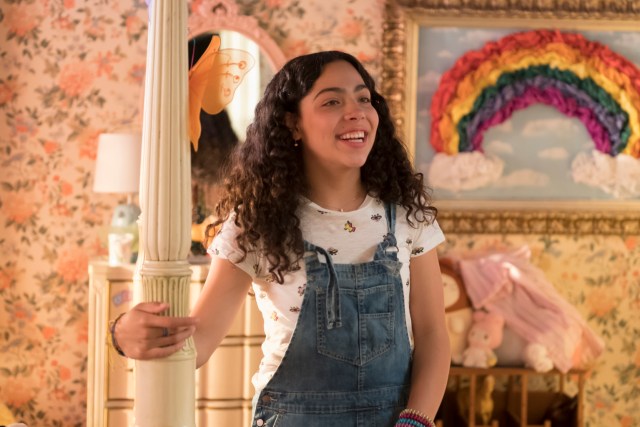
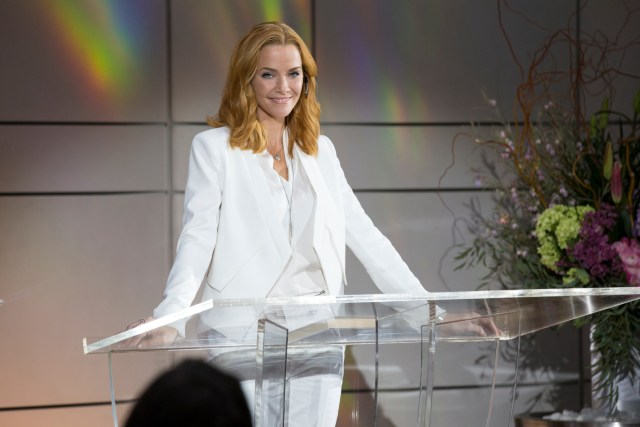



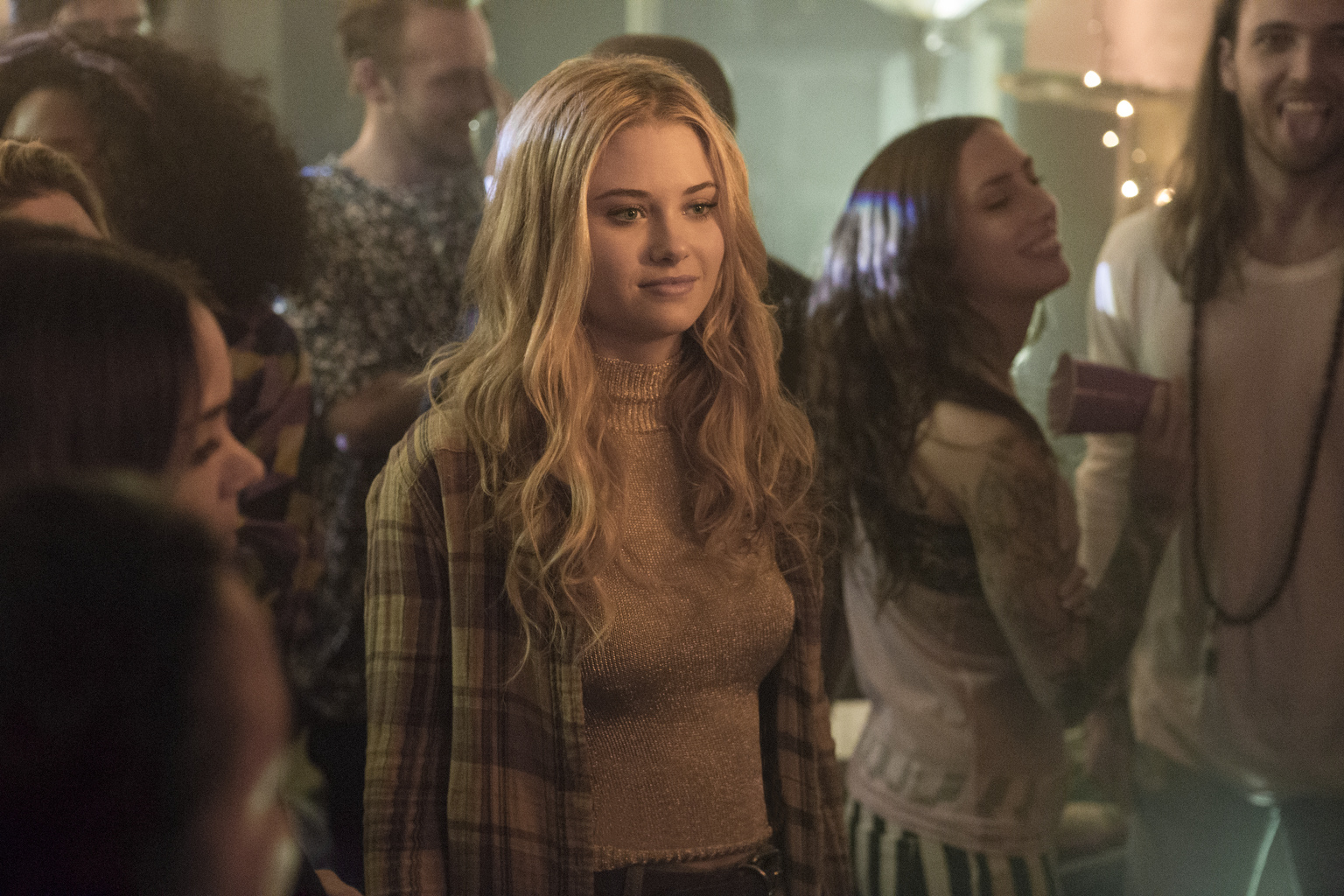




Comments
Okay I need to watch this now. Thanks for this.
I’ve been a fan of Runaways and Karolina for so long and I’ve been so nervous for this show but I love it so far! The actress playing Karolina is perfect and Nico is so awesome! I love literally every woman in this.
Runaways is one of my favorite series ever, and I’m trying SO HARD not to “but in the comics!” too much…but I was so disappointed in the first episode! I thought everything it established in 50 minutes could have been done in 15, and I was super not down with the addition of the attempted rape scene, which is shrugged off by everyone and functions solely to let us know that a male character is a good guy.
That being said, the casting is fantastic, and I haven’t given up on it!
God, I’ve been so deprived of gay content that I just want Karolina to unlock her full gay potential like yesterday… But you’re right — a slow-burn arc would make it that much more worth it.
That said, I’m still hoping Nico turns out to be somewhat queer in the Hulu rendition. Even though, I very much ship her and Alex together.
So like nobody’s going to mention how Gert basically stared at Chase nude without his consent and then attributed it to the patriarchy? That was a gross and careless portrait of sexual violation/harassment/violence that, in addition to the party scene makes me skeptical about keeping up with this show.
I AM SO GAY FOR THIS RECAP AND SHOW!
Ah, I’m so excited to watch this later! I like a slow burn as long as it pays off, and I love a good coming out story.
So I just binged the first five episode of the show with my best friend today, and I’m VERY intrigued. I’m mollified by the lack of gayness so far by the promise it’ll be happening in the future, but even apart from the gayness, I’m fascinated. The pilot was a little predictable, but (as a non-comics reader) everything since then has managed to subvert my expectations in some really great ways. I have so many questions, and each reveal is tantalizing and only leads to more, and I’m excited to keep watching and finding out!
Re: Karolina, I did not think I was going to like her as much as I do! The beautiful blond girl next door is not usually my type, but (and I think part of it is that she looks SO MUCH like Eliza Taylor aka Clarke Griffin that it is blowing my mind a bit) I’m really loving her character arc so far.
I have heard a lot about Marvel and finally glad to find its blog. This person is a great one to visit its blog and students can check edubirdie services to finish their work. We respect that person by heart. And I hope that I will visit this blog again to read more about that person.